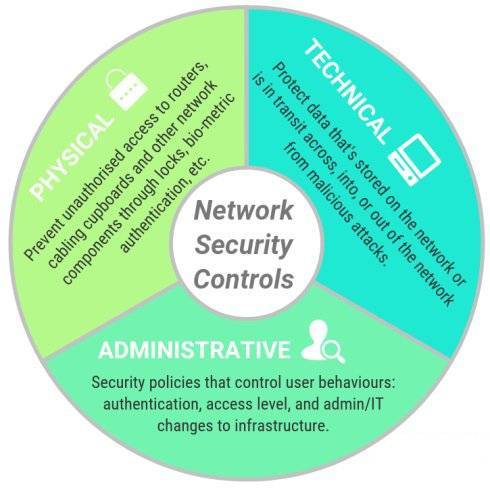
Looking for the best online Network Security courses? Networking is an evolving domain in the IT world. The field is becoming more and more accessible and known to people. It is taking steps alongside the mainstream engineering streams like software, mechanical etc. Since Networking is growing and becoming its better self, the need for its security has also become a major need and a topic of attention. With all this talk of Network Security, the field also gets a huge chance to grow. In this blog, we shall know everything about Network Security and the certification courses related to it.
What is Network Security?
Network Security is a very broad term, that is inclusive of multiple technologies, devices and also many processes.
To put it down simply, it refers to a set of rules and configurations designed to protect the integrity, confidentiality and accessibility of all computer networks and data employing both software and hardware technologies.
The growing need for Network Security Engineers:
Network security’s need is never-ending. Needless to say, the need for Network Security Engineers is felt by all organisations, irrespective of size. Be the company or organisation’s size is small or big, there is a need for network security solutions to some degree, so as to protect it from any kind of cyber threats.
Also that the infrastructure of today’s network is complex and poses a greater threat. Network security is efficient in addressing individual threats as well.
It also keeps in check the threats, exploits and also certain regulatory non-compliance.
How does Network Security work?
When we look at the working of network security across any organization, we get to know that there are many many layers to it. There are many layers to network security so it becomes essential that your network security hardware, software and even the policies be such that they can address such issues and such areas.
Let’s now discuss the varied controls of different types. There are three different controls are as follows :
- Physical
- Technical
- Administrative

Now we shall have a look at these in slight detail.
- Physical Network Security:
Physical Security controls are designed in a way that prevents unauthorised personnel from gaining physical access to network components like routers, cabling cupboards and so on. Controlled access, such as locks, biometric authentication and other devices is almost unavoidable and must be there. - Technical Network Security:
Technical Security Controls protect data stored over on the network. The protection that is being facilitated is twofold. It needs to protect data and systems from unauthorised personnel, and it also needs to provide protection. - Administrative Network Security:
Administrative Security has control which comprises of security policies and processes which are potent in controlling user behaviour, including how even users are authenticated, their level of access and how IT staff members implement changes to their infrastructure.
Types of Network Security:
1. Network Access Control:
To be able to ensure that attackers can not infiltrate other networks, comprehensive access control policies are needed to be in a better place for both users and devices. Network access control (NAC) should be set at the most granular level. An instance of the same is if we grant more or full access to administrators of the network, but we deny giving access to specific confidential folders, or not letting certain devices from joining the network.
2. Antivirus and Antimalware Software:
Antivirus and antimalware software are competent in protecting any organization from a range of malicious software, inclusive of viruses, ransomware, worms and trojans. The best software also scans files upon entry to the network but continuously scans and tracks files.
3. Firewall Protection:
Firewalls act as a barrier between the not-so-trustworthy external networks and the trusted internal network. Administrators configure a set of defined rules that block or permit traffic onto the network.
4. Virtual Private Networks:
Virtual Private Networks (VPNs) create a connection to the network from another endpoint or site. For example, users that are working from home would connect to the organisation’s network over a VPN. Data between certain two endpoints is encrypted and the user would need to authenticate to further allow communication with their device and also the network.
5. Network Security and businesses and consumers:
Network security is always of prime priority for any organization that performs and works with networked data and systems. In addition to protecting assets and the integrity of data from external exploits. Network security can also manage network traffic very efficiently, enhance network performance and ensure secure data sharing between employees and other data sources.
Job roles after Network Security courses:
There are so many job roles after completing Network security courses. The roles are as follows:
Network Security Engineer:
The network security engineer is a lucrative career option. It is a very critical position in all kinds of organisations or enterprises. The role of this person is to implement security systems, to ensure the threats are countered and stopped. They are also supposed to see the maintenance of firewalls, routers, switches., various network monitoring tools and VPNs (virtual private networks)
- Salary Aspect:
The minimum salary for the job role of network security begins at a handsome 4 lakhs and can go up to a whopping 8 lakhs per annum.
Cyber security Analyst:
The role of a cyber security analyst is to help in planning, implementing and also upgrading security measures and controls. They are supposed to constantly monitor security access and also perform internal and external security audits to as ensure that there isn’t a presence of many loopholes or evidence of any kind of security lapses. Th role of cyber security analysts is responsible for conducting vulnerability testing, risk analysis, and security assessments and for managing the network.
- Salary Aspect:
The salary aspect of cyber security begins at 6 lakhs per annum.
Security Architect:
A security architect is another job role in this field which is just as crucial in the terms of designing the network and computer security architecture for any company. The security architect creates a design that is strictly based on the needs of the company and then works together with the programming team to build the final structure.
- Salary Aspect:
The average salary of a security architect often begins at a whopping 15-17 lakhs per anum ( approx)
Cybersecurity Engineer:
A cyber security engineer is su[ppoed to create and execute all kinds of secure network solutions. There exists a huge gap in the demand-supply of this role. There is a scarcity of this role, hence there is a huge scope for the same.
- Salary Aspect:
The salary aspect of a cyber security engineer in India ranges between 1o lakhs to 11 lakhs per annum ( approx)
Ultimate Network Security courses for getting started:
There are many Network Security certifications course that are suggested to an aspirant or an individual who is willing to get started in the field. The study of firewalls is considered the way in. We shall view a few of them, they are as follows:
Scope of the Network Security Courses :
There are many other roles in this field of network security, with really handsome remunerations, along with the ones we just had a look at The gap between demand and supply in the job roles, is huge and it acts as evidence that this field is progressing but there also exists an unfamiliarity about the field. Hence the Scope of Network Security Courses strengthens for an individual as the availability for job roles in this field is alive, and there exist many spaces for all trying, aspiring to be a part of this domain, along with very hefty salaries.
Conclusion: Network Security Certifications worth it or not?
In conclusion, it can be said that network security courses seems to be a legit lucrative option, as we read the scope of Network Security Courses right above, there’s more than one reason why an individual should go for this profession. The lack of familiarity work in favor of the aspirants as there is a huge need to bridge the gap between the need and employment rate in this domain.



